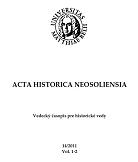
Keywords: Vychodna; annual holidays; traditional food
More...Keywords: Linguistics; Comparative onomastics; Complex comparative analysis; Comparative analysis operations; Succession of five operational methods;
Complex comparative analysis consist in certain methodical succession of sociolinguistic aspects and systemic dimensions of onymic systems. The following succession of operations is considered to be adequate: (a) an analysis of onymic systems in appelative or onymic context, (b) ascertaining of social aspect of onymic systems functioning (official//unofficial denomination), (c) dimension of frequency of onymic phenomena, (d) space dimension, (e) time dimension.
More...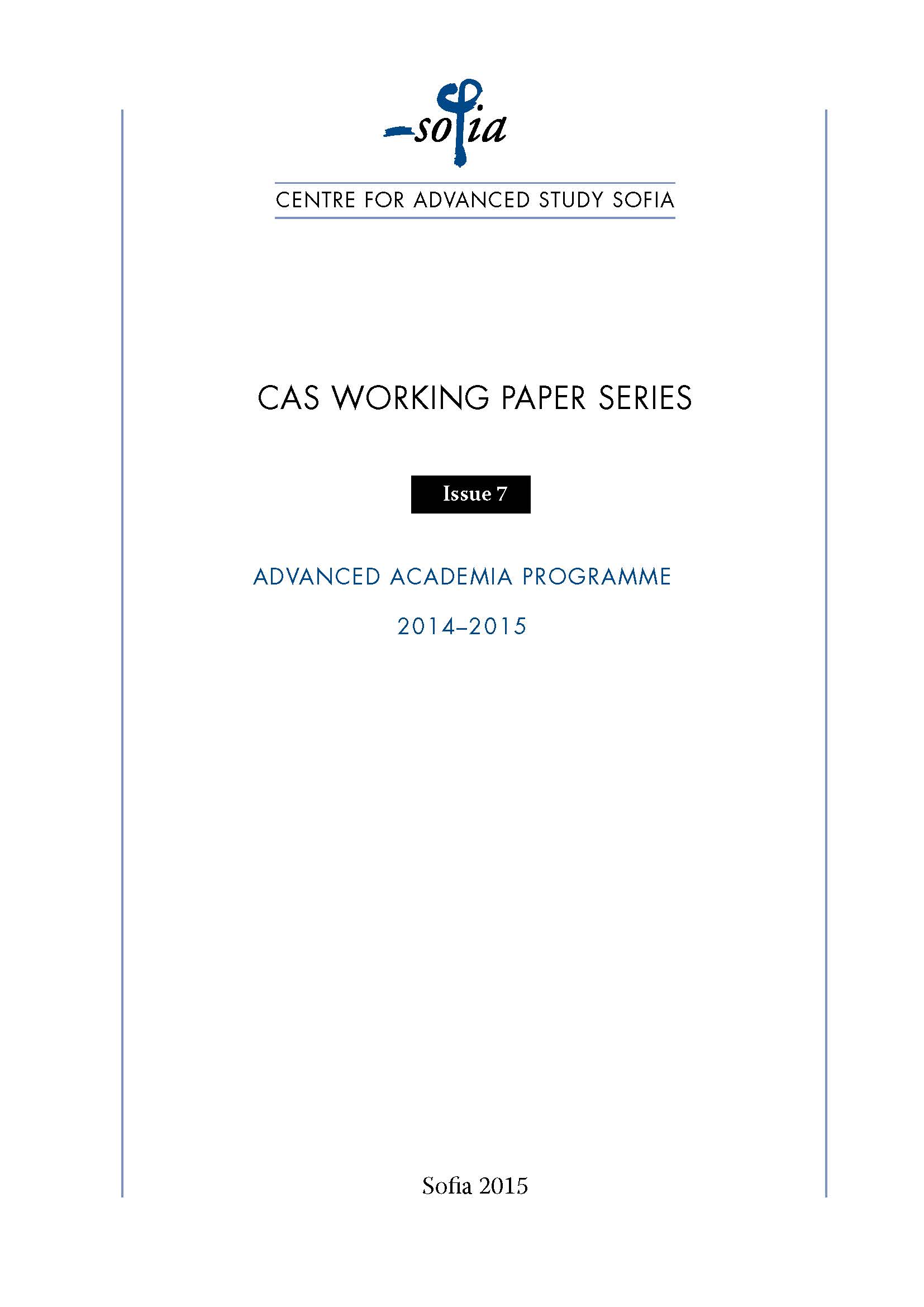
We presume that the major transformation within the epistemological theories of the late scholastic master Scotus and the classical thinker Kant is a result not of some abrupt transition or change of method, but is caused instead by the essential difference between the two concepts of “person” as used by the two authors. That is why we claim that the important transition, which should be carefully examined from the view point of history of philosophy, is the one focused on this fundamental reversal: how and when is the guaranteed-by-God finite identity and unity of the knowing subject transformed into a self-sufficient self, independent of any absolute infinite ontological guarantee? The two methodological approaches – the one of Scotus and the one of Kant – are in a very narrow sense “critical”: both of them examine the conditions and limits of human knowledge. But the concepts of the knowing subject, and that means the nature of human intellect and personal identity – the idea of person in genera – are distinct to a considerable degree. What we are trying to demonstrate is that the major change in epistemology from ontotheology to transcendental philosophy lies not within the methodological turn, but rather is produced by the redefinition of the concept of “person” and the new idea of identity and unity of the self, which in Kant’s theoretical framework is clearly distinguishable, because already according to Scotus we have ontology, and yet still an intellectual being fully depended on the absolute being of God.
More...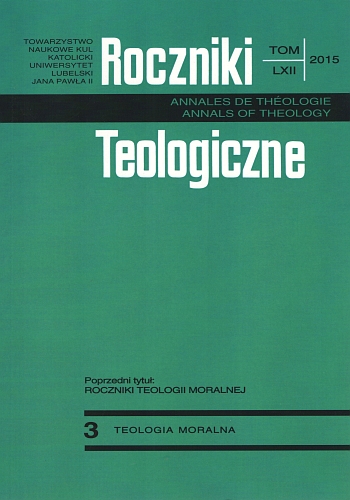
Keywords: procreation;artificial procreation;in vitro fertilization;anthropology;personalistic principle;
The issue of artificial procreation may be analyzed from a variety of points of view. Analyses made from the legal and social points of view, from the point of view of the situation of the child in same-sex relations and from the point of view of the consequences for the health of the child and the mother are the dominant ones. The anthropological dimension is very important, since it takes into consideration artificial insemination and situations that are possible in the future if improved techniques make it possible to depart from the circumstances that may be objectable and from the consequences of their use. The anthropological dimension dominates in all the documents issued by the Magisterium in which the issue of artificial procreation is discussed. In this dimension two aspects may be distinguished. The first one assesses the technical interferences with procreation from the perspectives of human sexuality co-constituting the human person and of fertility as the fruit and the sign of marital love. The act of procreation that is adequate to the spouses’ dignity may not be limited to one dimension only: either exclusively the spiritual, or exclusively the carnal one; and hence it may not be separated from the personal, spiritual-carnal unification of the parents. However, in artificial procreation this „determination of unity and determination of parenthood” is broken off.The other aspect is concerned with the personalistic principle that forbids treating a person as an object or as a means to reach an aim; it orders treating it as a value in itself and an aim in itself. This principle also directs human procreation. At no moment of the existence of the child may the parents treat it as an „object”−„means” satisfying their desire or allowing them to achieve their aims. In the same way the specialists following the procedure of artificial insemination do not have the right to make decisions about the child’s life, for in this way they make themselves „lords” of the child; they usurp the right to make the decisions about the child, its birth, its life or death. This is especially well seen in the case of cryoconservation of human embryos. Such a relation is not permitted by the child's personal dignity.
More...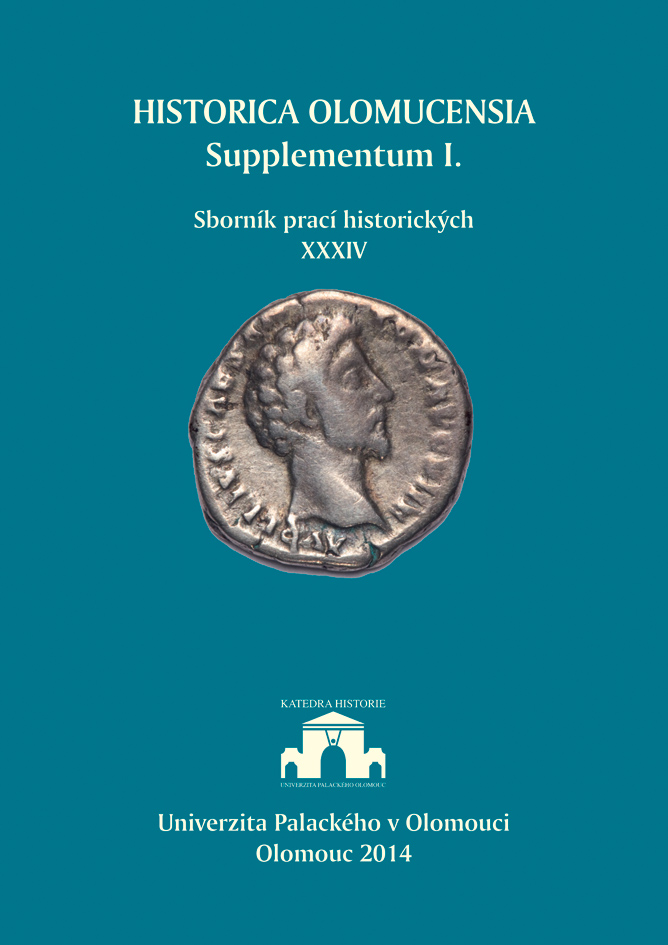
Keywords: Postilography; postils; denominations; 16th Century; quotations of ancient passages
The article deals with a reflection of ancient Greek and Roman exempla and quotations in renaissance postils of main Czech denominations. The using of the ancient passages was influenced by two contradictory impacts: on one hand, there was the humanistic inclination to the ancient culture andits heritage and on other hand, prescriptions for composition of sermons and its theological and catechetic clarity. Two differential tendencies may be found: postils written by members of Unitas fratrum (Jan Kapita and Ondřej Štefan) as well as the Roman Catholic Tomáš Bavorovský accepted sacral prescriptions and omitted nearly all ancient passages. On the contrary, two preachers educated by Melanchton in Wittenberg, Jan Achilles Berounský and Martin Philadelphus Zámrský, used a very large amount of various quotations and other reflections of the Greek and Roman ancient inheritance.
More...Keywords: Karlovci Grammar School; philosophy teaching; evolution; “Reports”; period between the two world wars
This paper researches the representation of philosophy subjects and topics in Karlovci Grammar School in the period between the First and Second World Wars. After a thorough analysis of the “Reports” and other available primary and secondary sources about the activity of the Grammar School, the author concluded the following: there were certain changes in the names of philosophical subjects (first it was the Philosophical Propaedeutic then Fundamentals of Philosophy), the scope of study (in fourteen considered “Reports” the scope was four classes a week, two classes in each of the final two grades of the Grammar School, while in eight “Reports” philosophy was taught only two classes per week in the eighth grade), the content of lectures (Logic and Psychology together, just Logic, just Psychology), the textbooks used in the classroom (Logika za srednja učilišta, Psihologija za srednja učilišta, (Đ. Arnold), Psihologija za srednje i stručne škole (B. Lorenc), Logika, Za učenike učiteljskih i drugih srednjih škola (B. D. Marković), Osnovi psihologije: za srednje i stručne škole (B. Petronijević), Logika za školsku i privatnu upotrebu (S. Ristić),) and teachers (six in total: Dušan Spernjak, Panajot Miodragović, Jovan Marčetić, Simeon Grozdanić, Vladimir Vujić and Milivoj Ivančević), however these, in the years that followed until the beginning of World War II, rarely coincided with changes in the curricula, as well as with the adopted laws, regulations and decrees. Moreover, the research showed that the teaching of philosophy in Karlovci Grammar School had a specific evolution which was significantly independent of implemented changes.
More...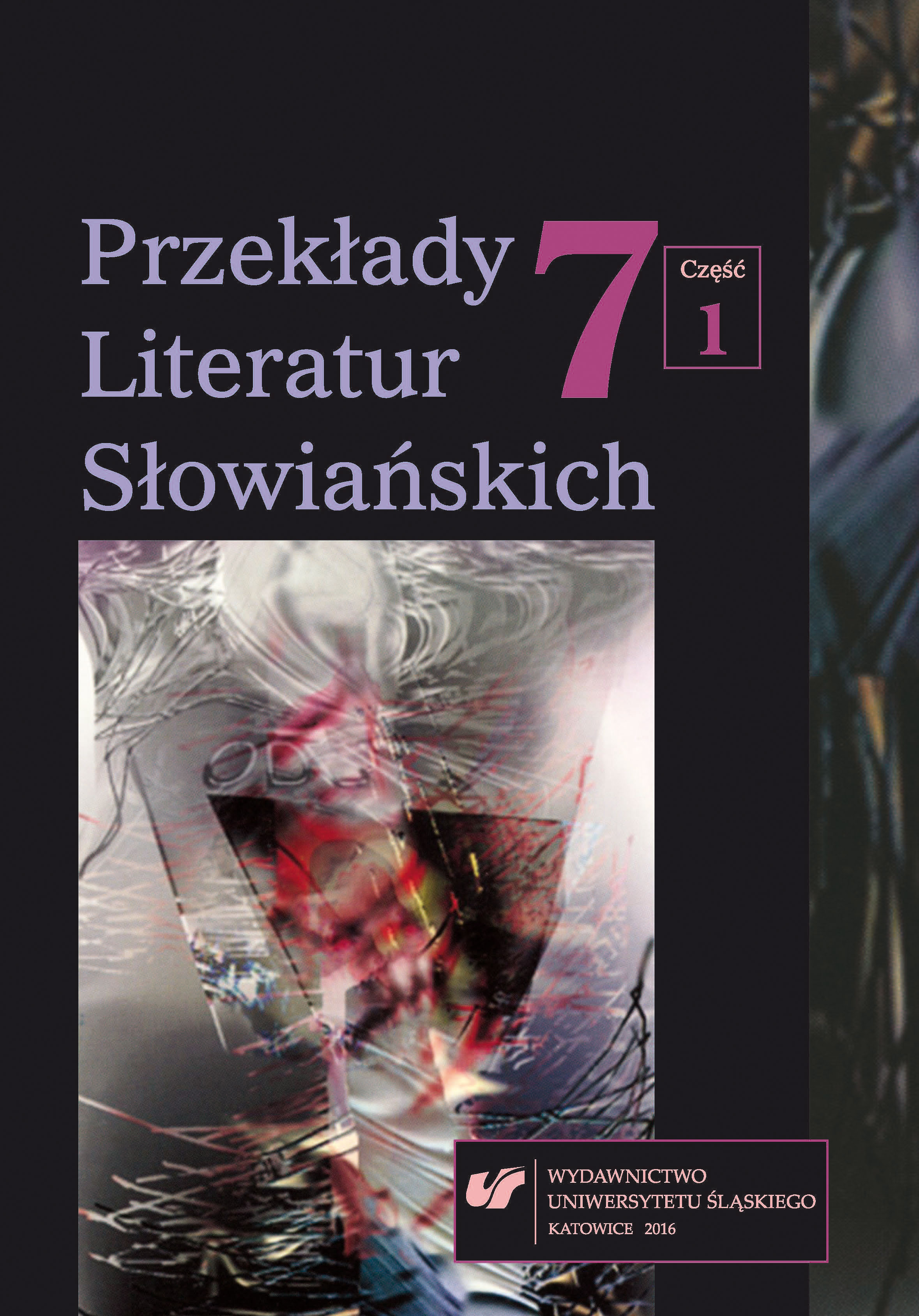
Keywords: translation studies; translation; interpretation; Kochanowski; old literature
This paper presents analysis some translatological questions in the field of translating of an old literature, on the basis of the selected fragments from the works of Jan Kochanowski and from the essay of Czesław Miłosz that examines some translatological problems. An analysis of the cited fragments and their translations shows that translation of Renaissance literature should also opt for knowledge of the contemporary poetics and rhetorical rules, which formed a part of the legacy from the literature of the ancient period.
More...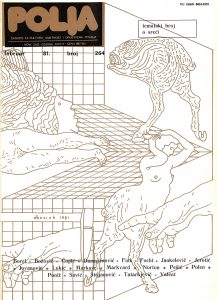
Pitanje o sreći ostaje apstraktno ako se odvoji od pitanja o nesreći. Jer, za ljude ne postoji sreća bez nesreće. Ljudski nije moguće postojanje svega korisnog, a nedostatak onoga što je štetno. Na ovome svetu ne postoji čista sreća: to uviđa i onaj koga nagriza sumnja da li — u nekoj večnosti ili budućnosti — postoji neki drugi svet iz kojega bi ona mogla da potiče. Pa ipak, u »ovom svetu«, u svetu u kojem žive ljudi, sreća uvek ide uz nesreću, javlja se uprkos nesreći ili povezana s njom. Ljudska sreća je, sasvim elementarno, neprestano sreća u nesreći.
More...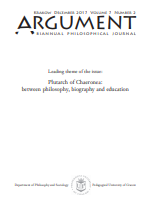
Keywords: Plutarch; Theodore Metochites; reception; Byzantium;
The paper focuses on the reception of Plutarch’s Moralia in Theodore Metochites’ Semeioseis gnomikai. It discusses chapter 71 of Metochites’ work, one of several chapters focused on ancient authors, which is dedicated to Plutarch. Metochites praises Plutarch as a wise man and a philosopher and in particular approves of his character. According to Metochites, Plutarch was not tainted by the usual flaws of intellectuals such as envy and arrogance, but was motivated by a pure love of wisdom and generously acknowledged the achievements of his predecessors. Metochites interprets Plutarch’s erudition, polymathia, as a sign of a noble, high-minded nature, and therefore as evidence of moral virtue.
More...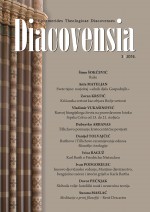
Keywords: Franciscan Theological School; Petrovaradin; 18th century;
Srijemski gradić Petrovaradin je za vrijeme Bečkog oslobodilačkog rata (1683.-1699.) u tri navrata (1687., 1688. i 1691.) oslobađan od turske vlasti. Poslije njegove uspješne obrane od turskog pokušaja da ga ponovno osvoje u jesen 1694. godine, nastanili su se ondje, i to blizu tek izgrađene tvrđe, i franjevci Provincije Bosne Srebrene koje je predvodio fra Simun Dabić.
More...Keywords: kataryzm; herezje średniowieczne; egzegeza biblijna
Some scholars, following a deconstructivist interpretation of Catharism (which denies the existence of Catharism as dualistic heresy, or at least diminishes the significance of dualism as its distinctive feature) propose a hypothesis which assumes that Cathar dualism was not an idea imported from the East (from the earlier dualist traditions, especially from Bogomilism), but that it emerged independently in the West, later than it is reported by the sources, as an effect of specific scriptural exegesis developed in the dissidents’ schools. The main aim of this article is to verify, through the analysis of Biblical exegesis, this hypothesis, on which the myth of the fall – crucial for the dualist doctrine – was built. Based on various sources, both polemical and created by the Cathars themselves, it reconstructs biblical foundations of this crucial myth in two main branches of Catharism: the moderate and the radical (within the latter in two of its options: the angelic doctrine, and the doctrine of the two worlds), comparing them to the analogical exegetical concepts developed earlier by the Bogomils.
More...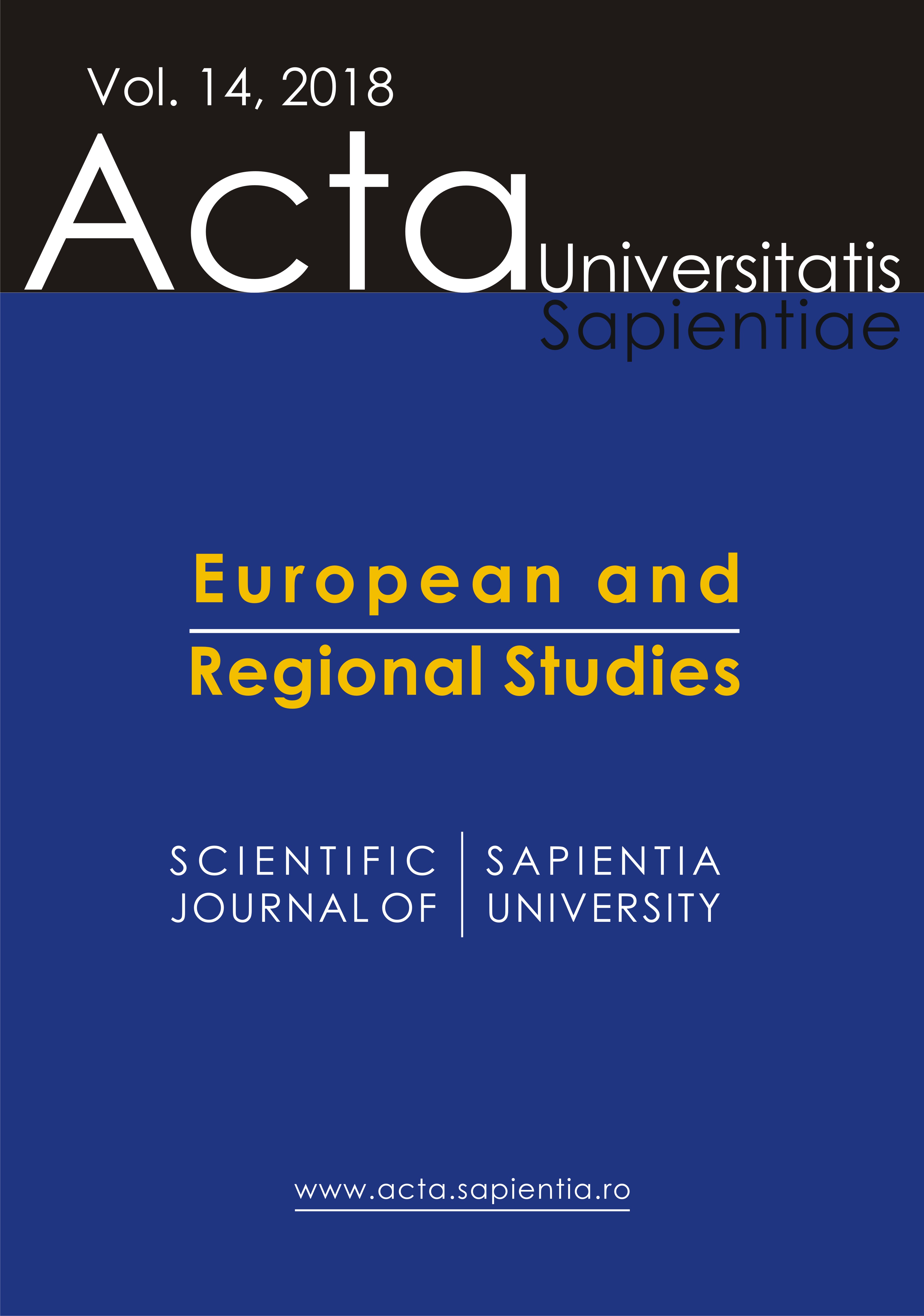
Keywords: common sense; Georg Wilhelm Friedrich Hegel; Gusztáv Szontagh; János Erdélyi; János Hetényi;
The topic of the present article is the destruction of the common sense tradition linked to the urbanity of philosophy, which had deep roots both in the European and Hungarian traditions. This destruction was based on Hegelian ideas by János Erdélyi as an argument of the greatest philosophical controversy of the Hungarian philosophical life in the 1850s. In Erdélyi’s argumentation, the turn from the supposed urbanity to the supposed rurality of the common sense has a fundamental role. The idea of the rurality of the common sense has an influence on the Hungarian intellectual history of the next centuries, as well.
More...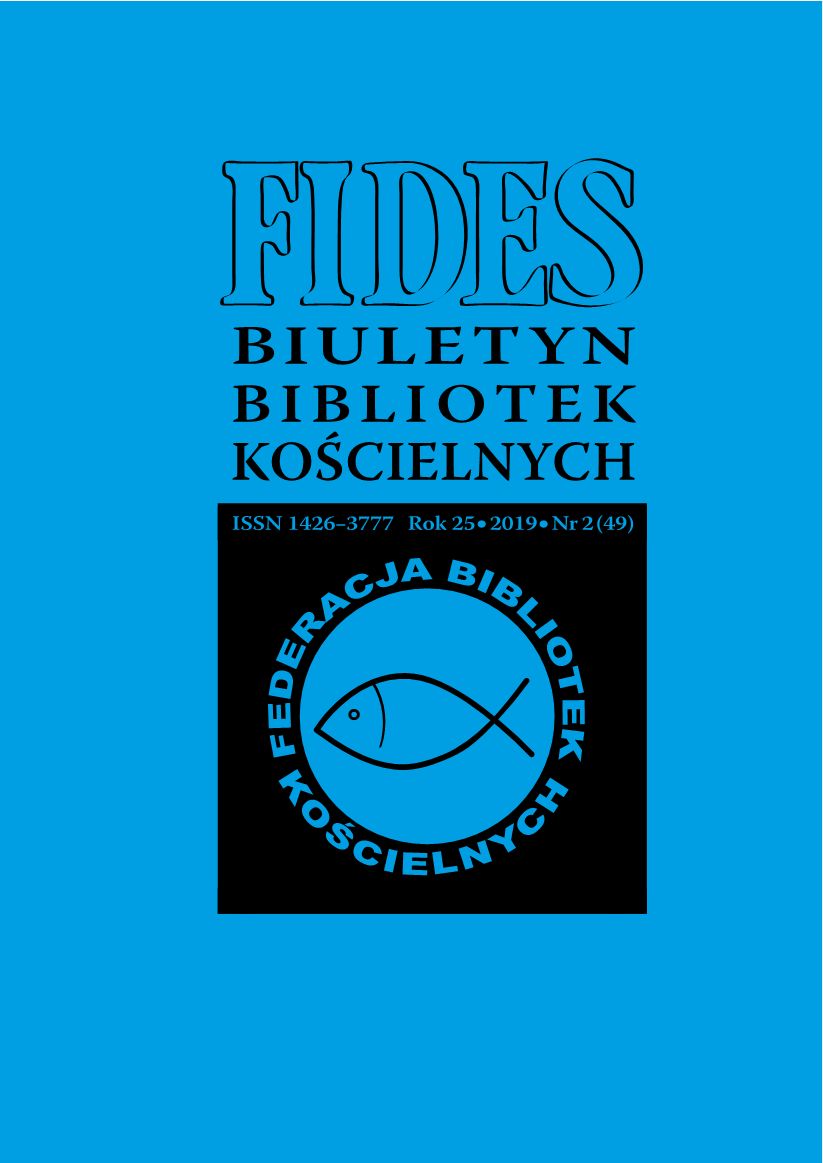
Keywords: library inventories;Bernardines;Dominicans;Carmelites;Piarists;Central Poland;monastic lib
The purpose of this article is to discuss library inventories of Bernardines, Dominicans, Carmelites and Piarists from the present Central Poland in the 17th and 19th centuries and to show their importance as the basic source for recreating old libraries. The inventories of the first three orders and the Piarists from Wieluń concern monastery libraries, while the Piarists’ inventories from Łowicz say about books in the faculty school run by monks. Inventories of this orders occur in orders’ archives in Cracow and in Diocesan Archive in Wloclawek.
More...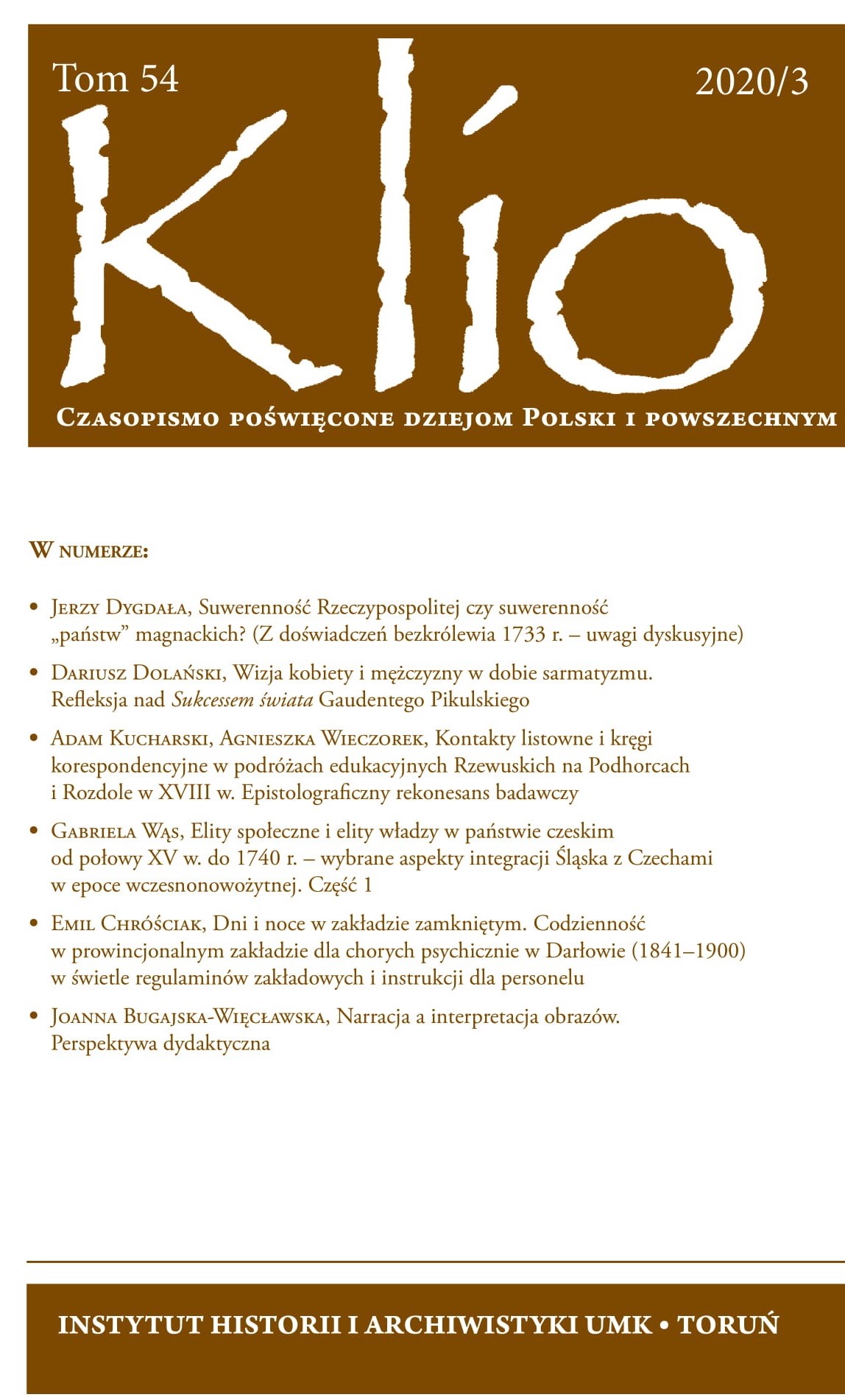
Keywords: Gaudenty Pikulski Sarmatism; Polish historiography of the 18th century; woman; man
Gaudenty Pikulski was a theologian and historian, author of a compendium on world history, in which the story of the creation of Adam and Eve inspired him to reflect on the relationship between men and women. Drawing on the authority of moderntheologians, Pikulski obtained evidence for the submission of women to men, based on Eve’s creation from Adam’s rib. Pikulski’s argument is critical of his contemporary morals, in which women attempted to take a place that was equal to men. Pikulski traces thebeginnings of the breach in the God-given natural order back to antiquity.
More...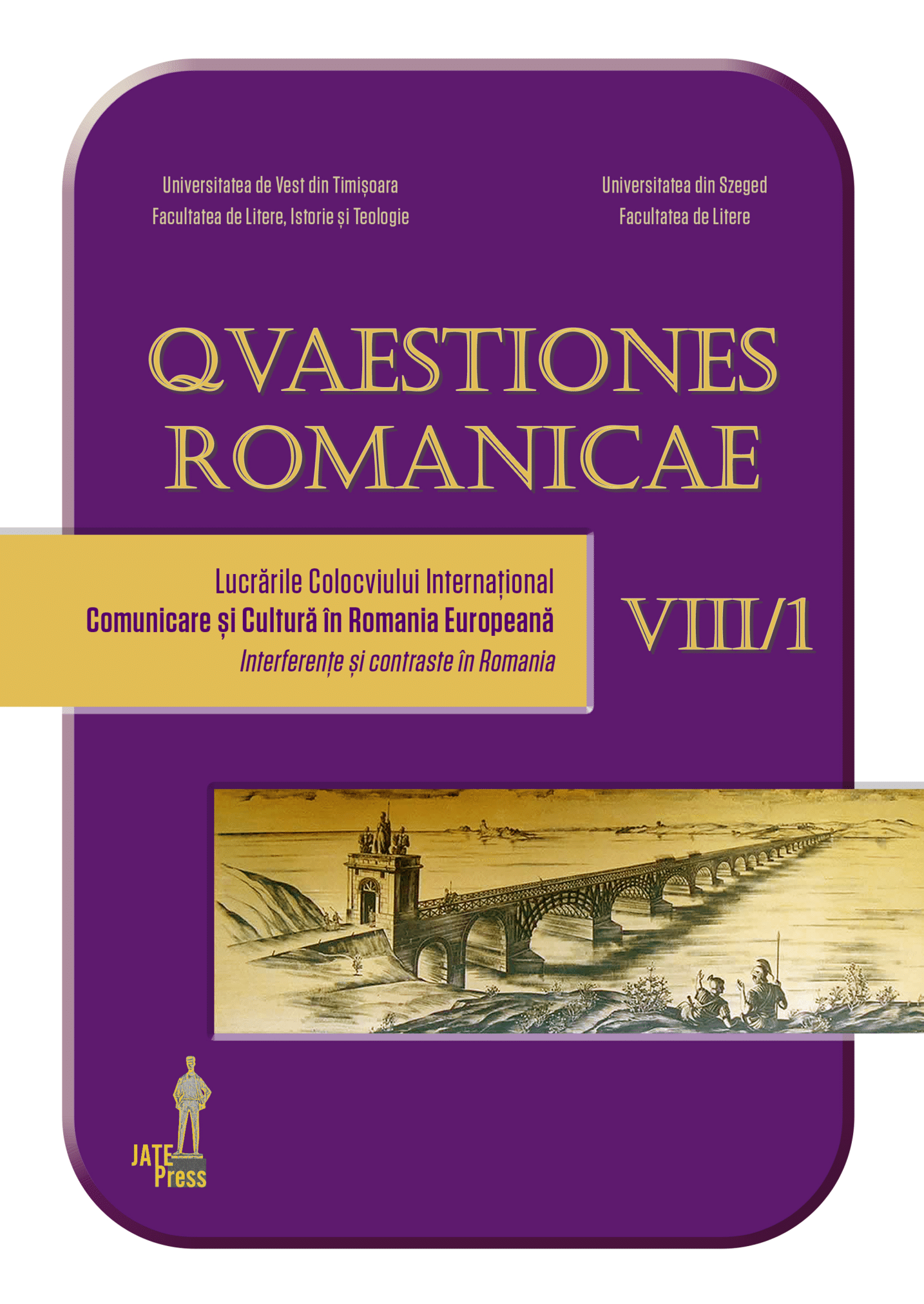
Keywords: laus Italiae;Latin literature;topos;dichotomy;eulogy;
) The image of an Edenic Italic space, of which the description is often utopic, has a long tradition. Italy's topos as an ideal homeland pervades Latin literature, it's visage echoing into the present day. But as the artistic discourse is constructed, in prosperity's shadow we see the threatening signs of dissolution. Aiming intensely at the awakening of the numbed consciences, the topos knows an essence twist. In such circumstances, prosperity becomes also an index of decadence. The cohabitation – dynamic, tense – between utopian and dystopian adds a layer of dramatism that we perceive today from an elevated standpoint. My paper follows some of the literary milestones of this topos, with a particular focus on its manifestations in the Latin literature from the last half of the pre-Christian century.
More...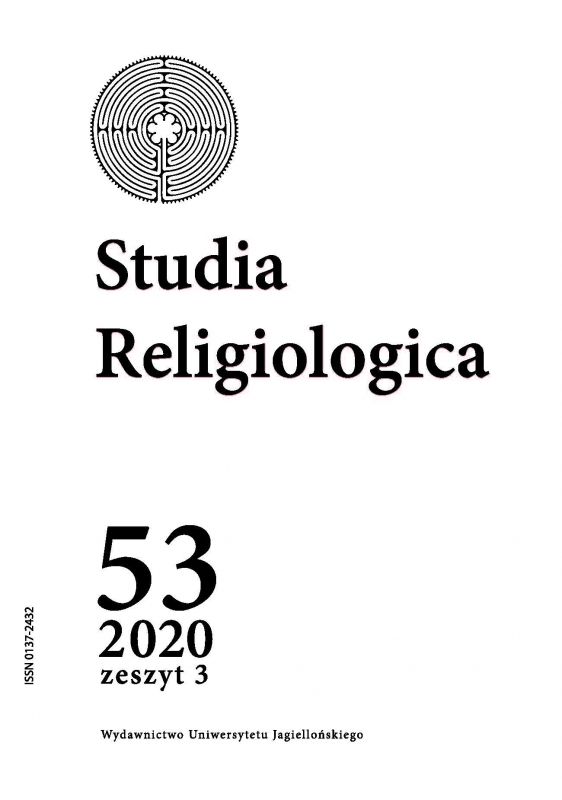
Keywords: kategoria trickstera; mitologia antyczna; Autolykos; Syzyf; literatura antyczna; category of trickster; ancient mythology; Autolycus; Sisyphus; ancient literature
The goal of this article is to juxtapose the trickster model suggested by William J. Hynes in the text Mapping the Characteristics of Mythic Tricksters: A Heuristic Guide with the stories of Sisyphus and Autolycus. A philological method proposed in this article is based on a way of understanding a myth narrowly, as a narrative with a specific meaning, which can be expressed in any literary genre. According to this definition, every mythology which is available today is an attempt at presenting a story of particular mythical events and the fortunes of gods and heroes. Therefore, stories about Sisyphus and Autolycus are myths that have been transformed and which in their essence may have multiple meanings and cannot be attributed to one artist. The philological method is, in this way, based on isolating all fragments of the myth relating to the above protagonists and subsequently presenting them as a coherent narrative.
More...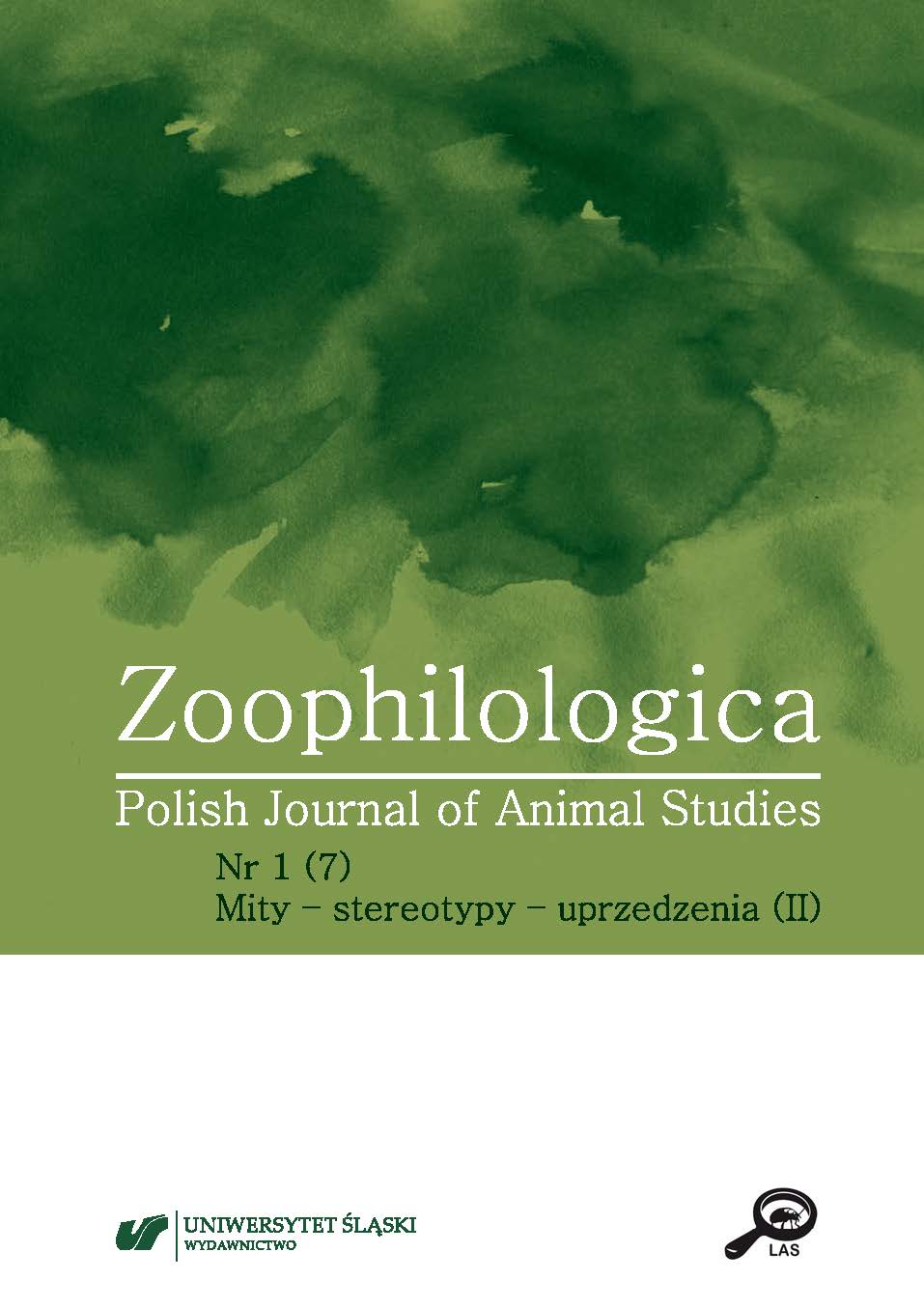
Keywords: Roman literature; zoology; Pliny the Elder; elephants; stoicism
As a point of departure, article presents the Stoic understanding of human-animal relationships: the Stoic philosophers presupposed human dominance over other creatures, which excluded the norms of justice as a means of limiting the human hegemony. On the basis of an excerpt from Pliny’s Natural History, which recounts a story of elephants, Tomasz Sapota examines the extent to which Pliny accepted this view of the Stoics.
More...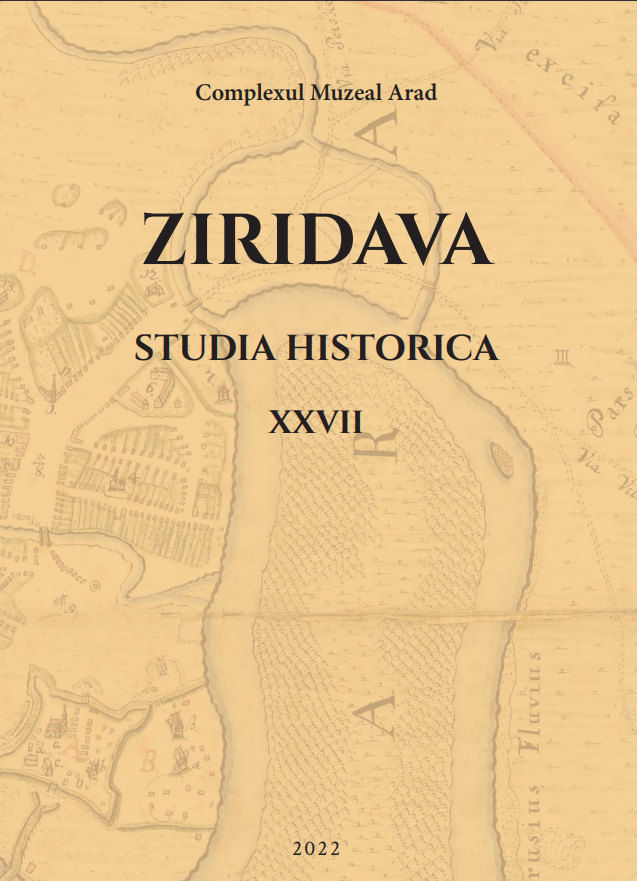
Keywords: Arad; collectors; old books; libraries; book collections;
The libraries of Arad, some formed in the 18th century and others in the second half of the 19th century have included, through donations and acquisitions, several private libraries from Central Europe and Arad. The attempt to restore the old funds, which implicitly indicates the circulation of heritage values from west to east, was made on the basis of their ex libris entries.
More...